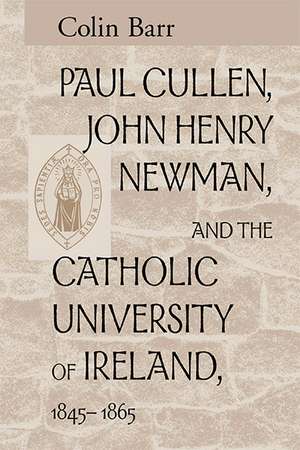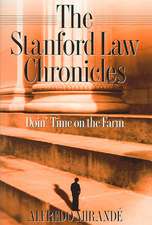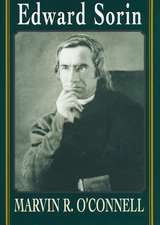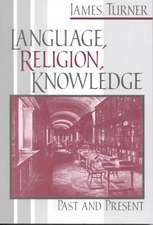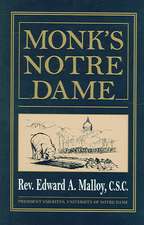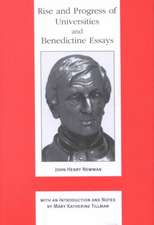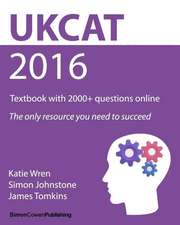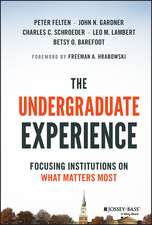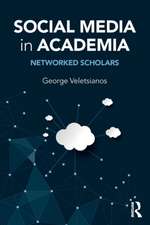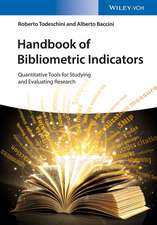Paul Cullen, John Henry Newman, and the Catholic University of Ireland, 1845–1865
Autor Colin Barren Limba Engleză Paperback – 29 apr 2003
Preț: 251.11 lei
Nou
Puncte Express: 377
Preț estimativ în valută:
48.05€ • 50.30$ • 39.76£
48.05€ • 50.30$ • 39.76£
Carte tipărită la comandă
Livrare economică 05-19 aprilie
Preluare comenzi: 021 569.72.76
Specificații
ISBN-13: 9780268038786
ISBN-10: 0268038783
Pagini: 304
Dimensiuni: 178 x 229 x 17 mm
Greutate: 0.44 kg
Ediția:1
Editura: MR – University of Notre Dame Press
ISBN-10: 0268038783
Pagini: 304
Dimensiuni: 178 x 229 x 17 mm
Greutate: 0.44 kg
Ediția:1
Editura: MR – University of Notre Dame Press
Recenzii
"Colin Barr has written a most judicious and illuminating history of the Catholic University of Ireland and the roles played by Archbishop Cullen and Newman in its founding and failure." —Journal of Ecclesiastical History
“This is an excellent book, based on careful and detailed inquiry. Though derived from a thesis, it is written with clarity and fluency. It tells a new story, or rather is an example of historical revisionism at its best, with an new and more truthful story emerging to replace the old and tendentious one. To everyone interested in in both the history of Irish education, and the complexities of Ireland in the 19th century, Barr's book will be of immense interest and value.” —Irish Catholic
"Colin Barr's well-researched study... offers real insight... into an often-overlooked period of Irish history. Barr's book is useful and evenhanded history, well organized, clearly presented, and based on wide-ranging research."—Journal of Modern History
". . . Grounded in a deep, critical reading of original archival and contemporary printed sources . . . Barr's study breaks new ground. . . . He has written history as a serious archival scholar should write it. He has brought new sources and information to bear on his subject, and both Irish historical study and Newman scholarship stand in his debt." —Victorian Studies
“Barr’s work convincingly revises readers’ understanding of the formation of the Catholic University of Ireland, giving Cullen credit for his stewardship of what traditionally has been labeled Newman’s University. Colin Barr has written an outstanding book, essential reading for scholars and advanced students interested in the Catholic Church and higher education in nineteenth-century Ireland.”—History: Reviews of New Books
Notă biografică
COLIN BARR lectures in modern European history at the National University of Ireland, Maynooth.
Descriere
“This is a fine and impressive piece of work that makes an original contribution to nineteenth-century Irish history generally and to Irish education specifically. It will be welcomed by scholars who seek information about this important episode of Irish history.” —Senia Paseta, St. Hugh’s College, Oxford University
The history of the Catholic University of Ireland has long been overshadowed by the personality and writings of its first rector, John Henry Newman. Newman, author of the renowned The Idea of a University, played a vital role in the foundation of the university. But Colin Barr’s new study paints a richer portrait of CUI’s history by focusing on the university itself and on the influence of its founder Paul Cullen, archbishop of Armagh and then Dublin.
Most historians have based their treatments of the Catholic University of Ireland on Newman’s own voluminous correspondence and later writings and have tended uncritically to accept Newman’s own understanding of his role in Dublin and his relationship with Cullen. Newman has been cast in the role of a liberal, creative visionary who was frustrated at every turn by the obscurantist, ultramontane Cullen. Barr seeks to reassess Cullen’s role in the founding and history of the University by utilizing previously unavailable sources and by relocating the history of the Catholic University in its Irish context. Paul Cullen, John Henry Newman, and the Catholic University of Ireland, 1845–1865 presents a balanced treatment of both the university and of Newman and Cullen’s roles in its history. The resulting text is a fascinating story of determination, conflict, and failure.
